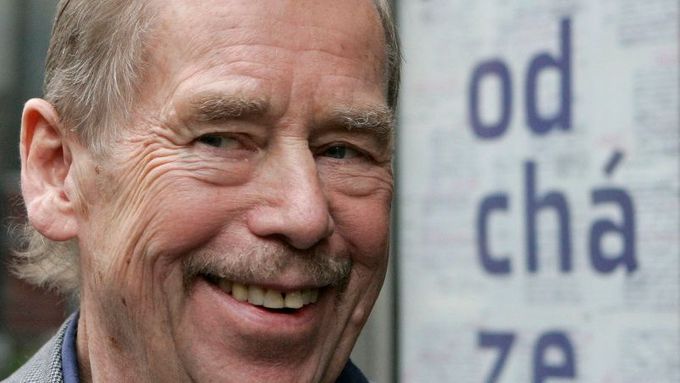Prague - A Czech playwright, dissident, president, and most lately, film director. Václav Havel started to film a movie adaptation of his play "Leaving" (Odcházení) from 2008.
The filming is expected to last until August, with a budget of CZK 44 mil (EUR 1.7 mil). The movie produced by UBC Film and distributed by Bontonfilm will have its premiere in March 2011.
While Jan Tříska starred in the play directed by David Radok, the movie will star Josef Abrhám and Dagmar Havlová, Havel's wife.
Read more: The world according to Havel: Troubled by Russia
"I have a quite solid idea of the film, I am keen on start working, I have good collaborators and the movie has excellent actors. I want to make my relative inexperience an advantage - hopefully I will avoid old habits, clichés and conventions more easily," Havel said earlier.
The filming will take place in Česká Skalice or at a mansion in Ploskovice.
Havel's family was linked to the Czech and Czechoslovak movie industry already in the inter-war period, in what was then the first Czechoslovak republic. Václav Havel admits that thanks to this family tradition, he has always wanted to be a movie director, ever since his childhood, however he could not for political reasons.
Read more: Václav Havel in Guardian: Europe must stand together
Play as intermediary product
This is the first time Havel directs his own work. "A play is a kind of intermediary product offered by its author to theaters which use it as they wish," Havel said.
"I believe that the author should accept this with humility. If he is not able to cope with how his play is directed, he should write novels instead of plays. After decades when my plays have been treated in this way, I feel a necessity to finally direct my own work. And, in addition, in the form of movie, which is a kind of internal satisfaction for me. Originally, and in fact for all my life I have wanted to be a film director. And now this will hopefully come true," Havel said.
"Leaving" is the first play Havel has written since the Velvet revolution from November 1989 that put en end to the Communist regime. At the end of the same year, Havel - an internationally recognized dissident figure - was elected president of Czechoslovakia. After the federation split up in 1993, he became the president of the Czech Republic, one of the two successor states.
The play is a story about power and how it is being lost. Dr Vilém Rieger has been a Chancellor for many years, however he lost the post recently, and by losing it his world practically felt apart. He needs to leave his governmental residence, he must separate his personal stuff from the things that belong to the Chancellorship. But above all, he witnesses a disintegration of his surroundings, of his court.
Leaving
The play has been showed all over the world in the last two years. The last time it was in May 2010 in Philadelphia's Wilma Theatre.
However, the reactions were not unanimously positive. Some critics pointed out above all that the play is a surprisingly personal proclamation about Havel's political past. Rieger's successor is a unscrupulous politician Vlastík Klein - and it is very difficult not to see this as a direct reference to Václav Klaus who succeeded Havel as the President of the Czech Republic. Both statesmen were considered political rivals who represented different ideological views as well as different styles of politics.
Read more: Havel deems Klaus's behavior as irresponsible
However, other people positively acclaimed the ironic description of Machivellist mechanisms in which a desire for power wins over morality.
The rest simply believe that "Leaving" as a critique of political power is weaker in its message than Havel' previous plays, however the play succeeds in portraying a lone man who is losing his power.
Altough this is Havel's first time as a movie director, he has already appeared on the other side of filmmaker's camera. Recently, he appeared in a documentary Citizen Havel. He also portrayed himself as the Czech President in some Czech movies.
Read more: Citizen Havel goes to silver screen. Here and abroad














